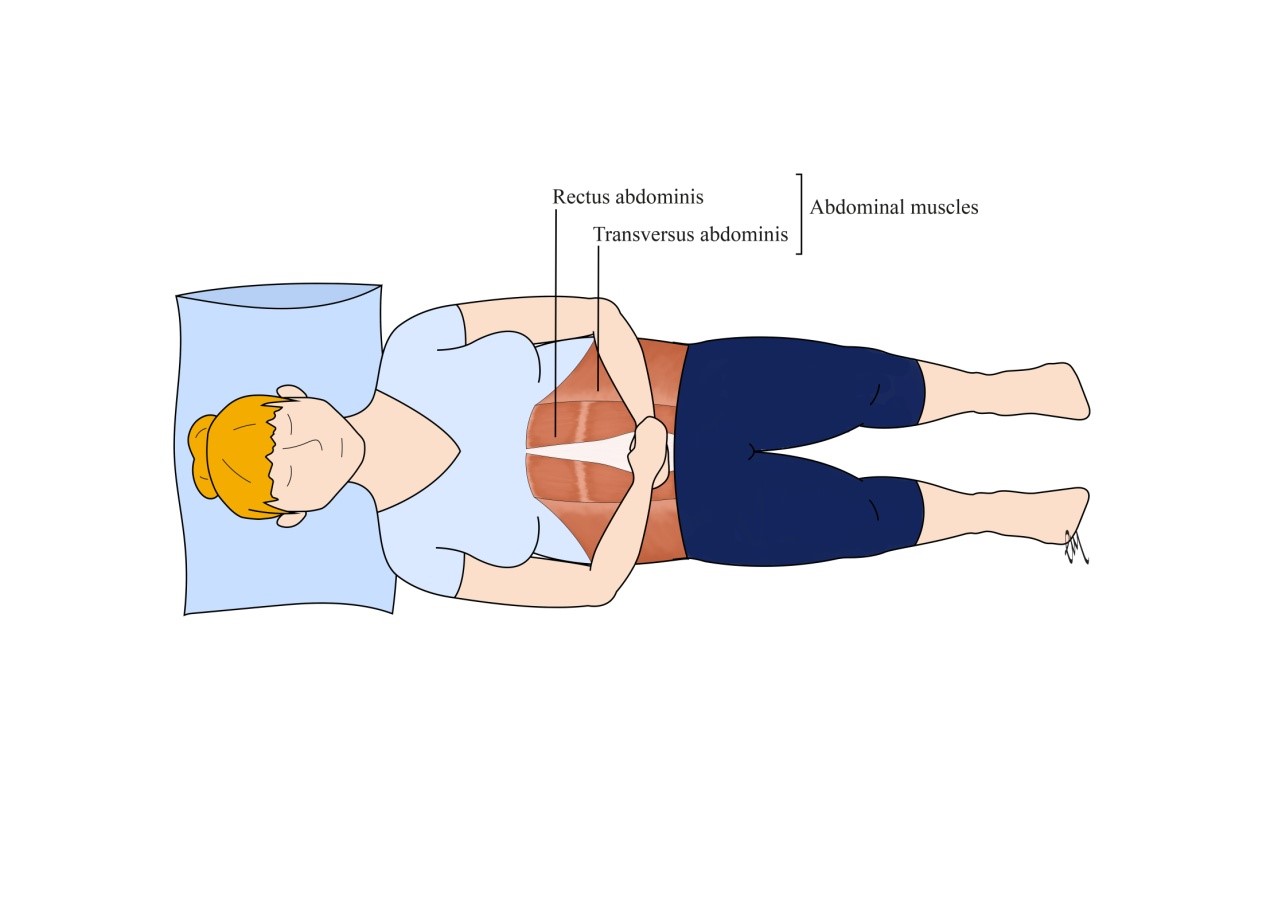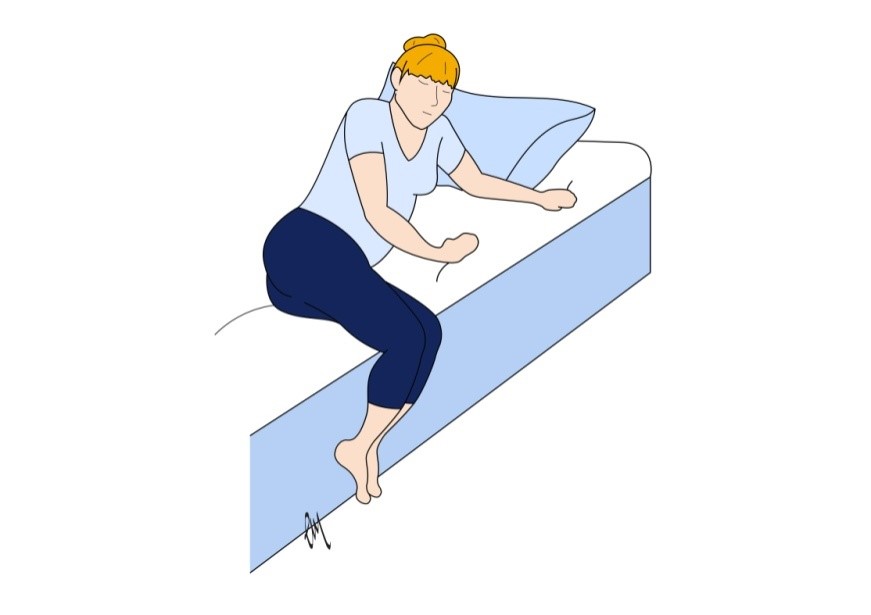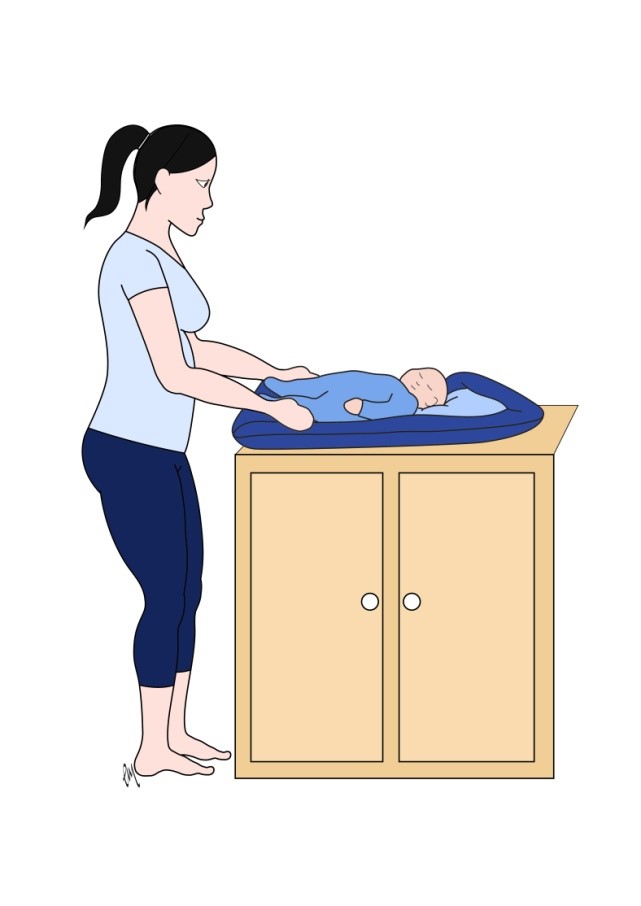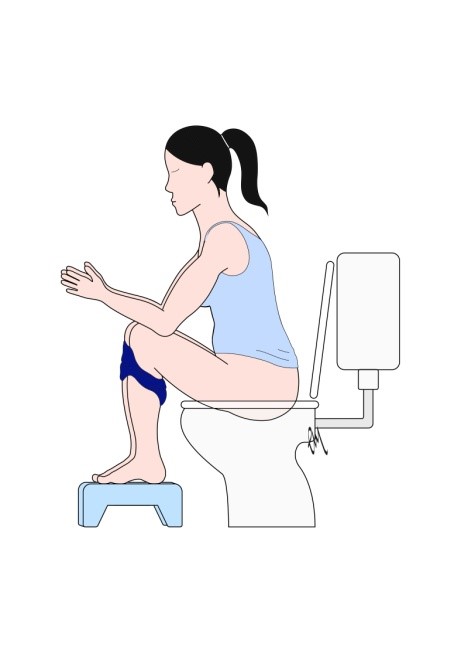Tummy muscle separation (DRAM) in pregnancy
Explanation of common symptoms/ problems
DRAM stands for diastasis rectus abdominus muscle. This is where the two halves of one of the tummy muscles called the rectus abdominus, or the ‘six pack’ muscle, move apart once they are not able to stretch any more. This is because as your baby grows, the muscles in your tummy area start to stretch. It can happen at any part along the middle of your tummy muscle, from just under your rib cage, to just above your pubic bone.
Although it can affect both women and men of different ages, it is very common to notice symptoms of DRAM when you are pregnant or after you have given birth. In fact, up to 60% of women may experience symptoms. Some of the symptoms you might notice if you have DRAM are:
- A bulging or doming in the centre of your tummy when you sit up from laying down
- Some discomfort along the centre of your tummy, especially when you have been more active
- A feeling of a gap when you feel along the middle of your tummy
- Poor posture
- Lower back pain
- Symptoms of incontinence
- Symptoms of prolapse

Self help / Advice
Although these problems are common, they are not normal and should not be ‘put up with’ in silence. It is important to seek help if you suffer with symptoms of DRAM as they can be improved with the right advice. See your GP or midwife and ask them to refer you to a specialist women’s health physiotherapist.
Lifestyle changes can also help to improve your symptoms of DRAM. Here are some for you to have a go at:
- When you first find out that you have DRAM try to avoid sitting up forward from lying down. Where possible, roll onto your side then push yourself into sitting. Also try to limit how much strenuous activity you do such as lifting, bending or twisting. As the muscles get stronger you should find that you can do these things more easily.

- Where you need to lift something, or someone, such as your baby, try to remember to keep your back straight, bend your knees and keep the load close to you. Try to squeeze your pelvic floor muscles and pull your tummy muscles in towards your spine as you lift and avoid holding your breath.

- Avoid exercises such as sit-ups, crunches and the plank, especially immediately after giving birth. Instead look at building up your walking tolerance and try gentle core exercises. Build up to harder exercises as you get stronger. Your physiotherapist will be able to advise you on how to do this.
- Start your pelvic floor exercises as soon as you feel comfortable to do so.
- Look at starting some gentle Pilates or Yoga exercises initially. Try to avoid high impact exercise such as jumping or running until you are stronger. Your physiotherapist will be able to advise you when this will be.
- Avoid constipation- Try using a step or stool under your feet to put yourself into a better position to empty your bowels.

Where to go to next
For further information about physiotherapy or to find a physiotherapist please follow the links below:
Find a Physiotherapist
What to expect from physiotherapy
Pelvic Health physiotherapists who treat pregnant women are used to treating people who have DRAM. They will carry out a thorough assessment to find out why you are getting these symptoms, including measuring the separation, and explain what can be done to help improve them. They will make sure that the treatment is very specific to your symptoms.
The tummy muscles, the diaphragm (your breathing muscle) and the pelvic floor muscles make up your ‘core’. Research has shown that exercises to strengthen your core, improving posture and lifestyle advice, will have the most benefit. Your Physiotherapist will guide you through a graded program of exercise until your tummy muscles are stronger again. It is important to follow this advice as some types of exercise may not be advised initially.